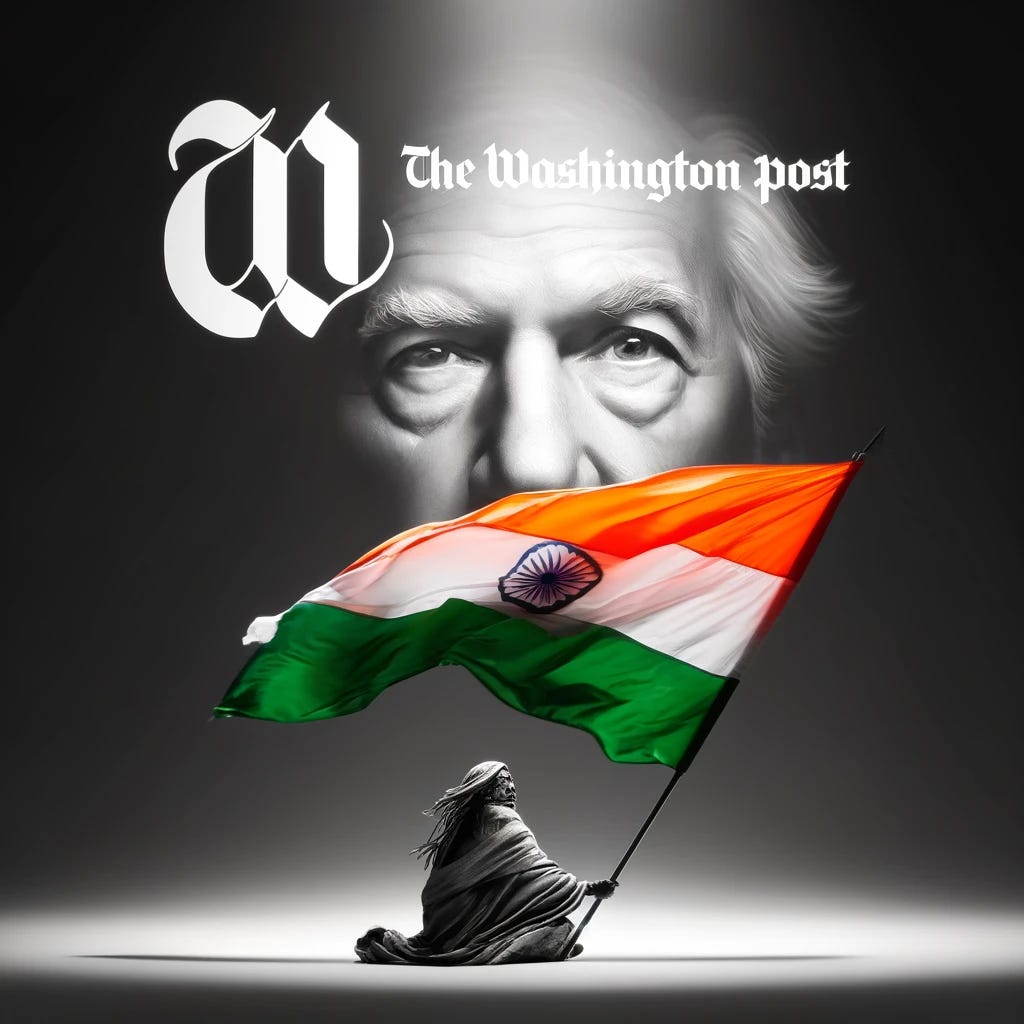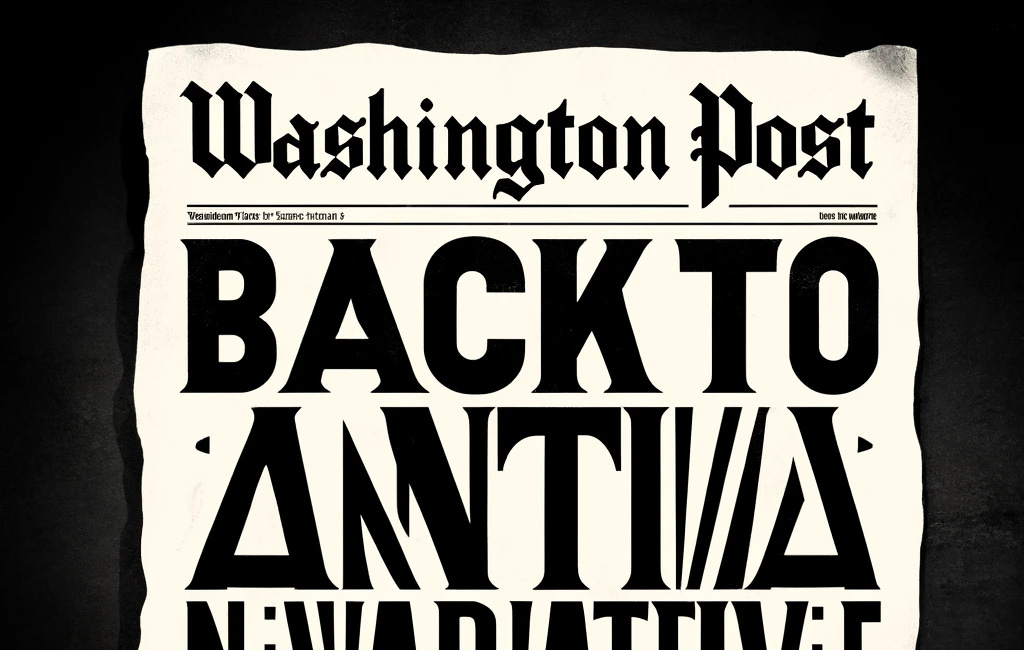Washington Post's Speculative Stance: When Journalism Crosses into Conjecture
Anti-India forces can operate overtly as well as covertly in many forms— "independent and objective" western media is just one of them.
Unfounded Allegations and Sensationalism
Irresponsible Journalism
The latest opinion piece by The Washington Post’s Editorial Team, close on heels of its previous report on alleged assassination plots involving Indian officials— which we strongly rebutted1— not only crosses the line of responsible journalism, but also veers into the realm of sensationalism and conjecture. By presenting unconfirmed rumors and indictments as established facts, the editorial compromises journalistic integrity. It does a disservice by claiming connections and approvals at the highest levels of the Indian government without substantial proof, relying instead on tentative assessments and unnamed sources.
The Risk of Naming Individuals
Exposure to Danger
Naming Indian public servants explicitly, such as Vikram Yadav and others, based solely on unsealed indictments or speculative intelligence reports, places these individuals at significant risk. This approach not only jeopardizes their safety but also vilifies them without due process. The Washington Post should consider the ethical implications of such reporting, where the potential for harm extends beyond reputational damage to actual physical danger.
Breach of Ethical Journalism
Crossing Ethical Lines
The role of a reputable international newspaper includes upholding the highest standards of journalism. This involves verifying facts, maintaining neutrality, and ensuring that reporting does not lead to harm. However, the article in question seems to neglect these principles, choosing instead to propagate a narrative without conclusive evidence. The lack of concrete proof and the heavy reliance on speculative links suggest a deviation from the ethical path expected of a publication of The Washington Post’s stature.
Undermining Sovereign Affairs
Inappropriate Interference
The editorial's tone and content could be perceived as an attempt to interfere in the internal and diplomatic affairs of India. By making broad assertions about the involvement of high-ranking officials without solid evidence, the Washington Post not only strains the diplomatic relations between India and the United States but also disrespects India’s sovereignty. The publication fails to consider the larger implications of its narrative, potentially affecting international relations based on unverified claims.
Conclusion: A Call for Responsible Reporting
In conclusion, while the freedom of the press is a vital component of democratic societies, it carries with it a responsibility to avoid incendiary and unconfirmed reporting. The Washington Post’s editorial could have focused more on calling for thorough investigations and less on presenting speculative assertions as facts. It is crucial for media outlets to remember their role in shaping perceptions and the real-world consequences of their reporting. Responsible journalism is needed now more than ever to foster understanding and cooperation between nations rather than sowing seeds of discord based on unconfirmed reports.
Washington Post: Back to Anti-India Narrative, under Garb of Investigative Journalism
Introduction to a Dubious Narrative As India stands on the precipice of pivotal Lok Sabha elections, a startling narrative has emerged in the Western media, spearheaded by a Washington Post article that went online barely minutes ago. The timing and substance of these allegations, which paint a portrait of an India embroiled in overseas assassination plo…




